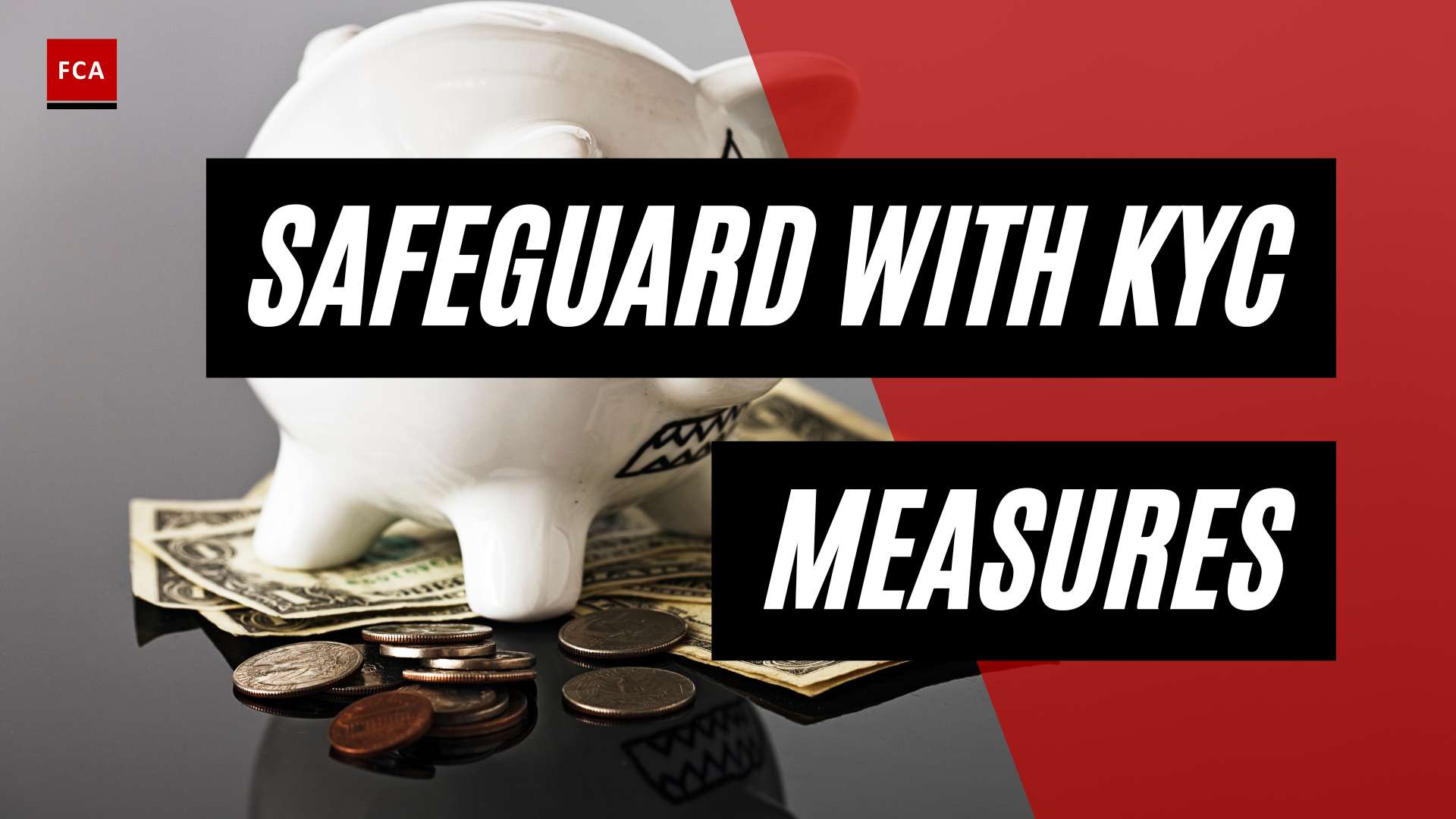Understanding AML in Crypto Exchanges
As the popularity of cryptocurrencies continues to grow, so does the need for robust anti-money laundering (AML) measures within the crypto industry. Crypto exchanges, in particular, play a crucial role in preventing illicit activities such as money laundering and terrorist financing. In this section, we will explore the importance of AML in crypto exchanges and the compliance challenges they face.
The Importance of Anti-Money Laundering (AML)
Anti-money laundering (AML) refers to the set of regulations and procedures designed to detect and prevent the illegal movement of funds. In the context of cryptocurrencies, AML measures are essential to ensure the integrity of the digital asset ecosystem. By implementing effective AML practices, crypto exchanges can mitigate the risks associated with illicit financial activities and protect their reputation.
AML regulations require crypto exchanges to implement robust controls and monitoring mechanisms to detect suspicious transactions and prevent money laundering. These regulations aim to ensure that cryptocurrencies are not misused for illicit purposes, such as funding terrorism, drug trafficking, or other criminal activities. By complying with AML regulations, crypto exchanges contribute to a safer and more secure financial environment.
AML Compliance Challenges in Crypto Exchanges
Crypto exchanges face unique challenges when it comes to AML compliance. The decentralized nature of cryptocurrencies, coupled with the pseudonymous nature of transactions, can make it difficult to identify and track the movement of funds. Here are some of the key challenges faced by crypto exchanges in their AML efforts:
-
Regulatory Uncertainty: The regulatory landscape for cryptocurrencies is still evolving, with different countries and jurisdictions adopting varying approaches. Crypto exchanges must navigate through this uncertainty and stay updated with the latest AML regulations specific to the jurisdictions in which they operate. For more information on AML regulations in the crypto industry, refer to our article on anti-money laundering regulations in crypto.
-
Transaction Monitoring: Crypto exchanges need to implement effective transaction monitoring systems to detect suspicious activities in real-time. Analyzing vast amounts of transaction data and identifying patterns of illicit behavior can be a complex task. However, it is crucial for exchanges to employ advanced AML software solutions that can automate this process and provide accurate alerts for potential money laundering activities. To learn more about AML monitoring for crypto transactions, visit our article on aml monitoring for crypto transactions.
-
Customer Due Diligence: Conducting thorough customer due diligence (CDD) and know your customer (KYC) procedures is vital for crypto exchanges to identify and verify the identities of their customers. However, the pseudonymous nature of cryptocurrencies can make it challenging to establish the true identity of individuals involved in transactions. Crypto exchanges must implement stringent KYC procedures to ensure compliance with AML regulations, as well as to mitigate the risks associated with money laundering. For more information on KYC procedures for cryptocurrency exchanges, refer to our article on kyc procedures for cryptocurrency exchanges.
-
Risk Assessment and Reporting: Crypto exchanges need to conduct comprehensive risk assessments to identify the potential AML risks they face. This includes assessing the risks associated with their customers, the jurisdictions they operate in, and the types of cryptocurrencies they support. Additionally, exchanges must maintain proper records and submit timely reports to the relevant regulatory authorities. Regular audits are also essential to ensure ongoing compliance. For more information on AML audits for crypto exchanges, explore our article on crypto exchange aml audits.
By understanding the importance of AML in crypto exchanges and the challenges they face, it becomes evident that implementing effective AML software solutions is crucial. These solutions play a pivotal role in helping crypto exchanges comply with regulatory standards, monitor transactions, perform customer due diligence, and manage AML risks effectively. In the following sections, we will delve deeper into the role of AML software solutions and the key features to consider when selecting one for your crypto exchange.
The Role of AML Software Solutions
In the world of cryptocurrency exchanges, implementing robust Anti-Money Laundering (AML) measures is essential to ensure compliance with regulatory standards and maintain the integrity of the financial system. AML software solutions play a crucial role in helping crypto exchanges effectively manage their AML responsibilities. Let’s explore how these software solutions aid crypto exchanges and highlight key features to look for when selecting one.
How AML Software Solutions Help Crypto Exchanges
AML software solutions offer a range of tools and functionalities that assist crypto exchanges in identifying and preventing illicit activities within their platforms. Here are some ways in which these solutions contribute to the overall AML efforts:
-
Transaction Monitoring: AML software solutions enable real-time monitoring of transactions on the exchange. They employ sophisticated algorithms and pattern recognition techniques to identify suspicious activities, such as large-value transfers, multiple rapid transactions, or transactions involving high-risk jurisdictions. By promptly detecting these red flags, exchanges can take appropriate action to mitigate potential risks.
-
Risk Assessment: AML software solutions facilitate risk assessment by assigning risk scores to customers and transactions based on various factors, including transaction history, source of funds, and customer behavior. This helps exchanges prioritize their compliance efforts and allocate resources effectively.
-
Customer Due Diligence (CDD): AML software solutions streamline the CDD process by automating identity verification and Know Your Customer (KYC) procedures. They enable exchanges to collect and verify customer information, such as identification documents and proof of address, ensuring compliance with regulatory requirements.
-
Reporting and Compliance: AML software solutions generate comprehensive reports and provide audit trails, simplifying the task of compliance reporting for crypto exchanges. These reports include transaction histories, customer profiles, and suspicious activity reports, which can be submitted to regulatory authorities when required. By maintaining accurate and detailed records, exchanges demonstrate their commitment to AML compliance and facilitate regulatory audits.
Key Features of AML Software Solutions
When selecting an AML software solution for a crypto exchange, it is important to consider certain key features that enhance its effectiveness. Here are some features to look for:
-
Automated Risk Scoring: The software should provide an automated risk scoring mechanism that assesses customers and transactions based on predefined risk factors. This ensures consistent and objective risk assessment across the exchange.
-
Integration Capabilities: AML software solutions should be able to seamlessly integrate with existing systems and databases within the exchange, such as transaction databases, customer databases, and compliance management systems. This integration enhances operational efficiency and reduces manual data entry errors.
-
Alert Management: The software should have a robust alert management system that allows exchanges to review and investigate alerts generated by the system. This includes providing comprehensive information about the alert, facilitating case management, and maintaining an audit trail of actions taken.
-
Regulatory Compliance Updates: AML software solutions should offer regular updates to ensure compliance with evolving regulatory requirements and industry best practices. This includes staying up-to-date with changes in AML regulations, sanctions lists, and watchlists.
By selecting an AML software solution that aligns with the specific needs of a crypto exchange, compliance professionals can streamline their AML processes, enhance their ability to detect and prevent illicit activities, and maintain a secure and compliant trading environment.
In the next section, we will explore important considerations for crypto exchanges when evaluating AML software solutions, such as transaction monitoring, customer due diligence, and risk assessment.
Selecting the Right AML Software Solutions
When it comes to choosing the right AML software solutions for crypto exchanges, there are several key considerations to keep in mind. These considerations will help ensure that the software aligns with your specific compliance needs and supports the smooth operation of your exchange.
Compliance with Regulatory Standards
One of the most critical factors in selecting AML software solutions for crypto exchanges is ensuring compliance with regulatory standards. The software should adhere to the anti-money laundering regulations specific to the cryptocurrency industry. This includes meeting the requirements set forth by regulatory bodies and following the cryptocurrency AML guidelines. The AML software should have robust features to monitor transactions, detect suspicious activities, and generate reports as per crypto exchange AML requirements. Choosing software that is regularly audited for compliance, such as crypto exchange AML audits, can provide additional assurance.
Scalability and Customization
As your crypto exchange grows, it’s crucial to have AML software solutions that can scale with your business. Ensure that the software is capable of handling increasing transaction volumes without compromising performance. Additionally, consider the ability to customize the software to meet your specific needs and integrate it seamlessly into your existing systems. This allows for a tailored approach to AML compliance, ensuring that the software aligns with your internal processes and workflows.
Integration with Existing Systems
Integration with your existing systems is another important aspect to consider when selecting AML software solutions for crypto exchanges. The software should be compatible with your exchange’s infrastructure, such as trading platforms and customer databases. This enables smooth data flow between systems and reduces manual effort. It’s essential to evaluate the compatibility of the software and confirm that it supports necessary integrations. By integrating the AML software with your existing systems, you can streamline processes and enhance efficiency.
By carefully considering these factors when selecting AML software solutions for your crypto exchange, you can ensure that your compliance efforts are robust and effective. Remember to prioritize compliance with regulatory standards, evaluate scalability and customization options, and assess integration capabilities. Choosing the right AML software is a crucial step in maintaining AML compliance for crypto exchanges and adhering to anti-money laundering regulations in crypto.
Considerations for Crypto Exchanges
When selecting the right AML software solutions for crypto exchanges, there are several important considerations to keep in mind. These considerations revolve around transaction monitoring and suspicious activity detection, customer due diligence (CDD) and know your customer (KYC) procedures, as well as risk assessment and reporting.
Transaction Monitoring and Suspicious Activity Detection
One of the primary objectives of AML software solutions for crypto exchanges is to monitor transactions and detect any suspicious activity. This involves analyzing transactional data in real-time to identify patterns and anomalies that may indicate potential money laundering or illicit activities.
Effective AML software should have robust transaction monitoring capabilities, allowing for the detection of suspicious transactions, such as high-value transfers, frequent transfers to/from high-risk jurisdictions, or transactions involving known illicit entities. By implementing advanced algorithms and rule-based systems, AML software solutions can help crypto exchanges stay vigilant and promptly report any suspicious activities to the relevant authorities. For more information on AML monitoring for crypto transactions, refer to our article on aml monitoring for crypto transactions.
Customer Due Diligence (CDD) and Know Your Customer (KYC) Procedures
To mitigate the risk of money laundering and other illicit activities, crypto exchanges must adhere to stringent customer due diligence (CDD) and know your customer (KYC) procedures. AML software solutions play a vital role in automating and streamlining these processes.
CDD involves verifying the identity of customers, assessing their risk profile, and conducting ongoing monitoring to detect any changes in their behavior or transaction patterns. KYC procedures involve collecting relevant customer information, such as identification documents and proof of address, to establish their identity and legitimacy.
AML software solutions should provide comprehensive CDD and KYC functionalities, ensuring that crypto exchanges are compliant with regulatory requirements. This includes identity verification, screening against watchlists and sanctions lists, and maintaining up-to-date customer records. By effectively implementing these procedures, crypto exchanges can enhance their defense against money laundering and fraudulent activities.
Risk Assessment and Reporting
Crypto exchanges must conduct thorough risk assessments to identify and evaluate potential risks associated with money laundering and terrorist financing. AML software solutions can assist in this process by providing risk assessment tools and frameworks, allowing exchanges to categorize their customers and transactions based on their level of risk.
Furthermore, AML software solutions should facilitate the generation of accurate and comprehensive reports for regulatory compliance. These reports should include details of suspicious transactions, customer due diligence results, risk assessments, and any other relevant information required by regulatory authorities. By automating the reporting process, AML software solutions enable crypto exchanges to efficiently meet their reporting obligations. For more information on AML reporting, refer to our article on crypto exchange AML audits.
By considering these vital aspects of transaction monitoring, customer due diligence, and risk assessment, crypto exchanges can make informed decisions when selecting the right AML software solutions. It is crucial for exchanges to prioritize regulatory compliance and the implementation of robust AML measures to ensure the integrity and security of their operations within the cryptocurrency space.
Evaluating AML Software Providers
When selecting the right AML software solution for your cryptocurrency exchange, it’s crucial to carefully evaluate different providers. Consideration should be given to their reputation and track record, the level of customer support and training they offer, as well as the cost and return on investment (ROI) of their software.
Reputation and Track Record
Choosing an AML software provider with a strong reputation and proven track record is essential. Look for providers that have experience working with cryptocurrency exchanges and a history of successfully implementing their solutions. Research customer reviews and case studies to gain insights into their performance and reliability. A reputable provider will often have partnerships or collaborations with regulatory bodies or industry organizations, demonstrating their commitment to compliance and best practices.
Customer Support and Training
The level of customer support and training provided by the software provider is a crucial consideration. AML software solutions can be complex, and having access to knowledgeable support staff is invaluable. Look for providers that offer comprehensive customer support, including technical assistance and prompt response times. Additionally, training resources such as user guides, tutorials, and webinars can help your team effectively utilize the software and stay up to date with the latest features and regulatory requirements.
Cost and Return on Investment (ROI)
The cost of implementing an AML software solution should be carefully evaluated against the expected return on investment. Consider the licensing fees, implementation costs, and ongoing maintenance fees associated with the software. Additionally, assess the potential benefits of implementing the software, such as improved compliance, streamlined processes, reduced manual work, and enhanced risk mitigation. While cost is an important factor, it should be balanced with the value and benefits the software can provide.
To effectively evaluate different AML software providers, it is recommended to create a comparison table with relevant criteria. Here’s an example:
| Criteria | Provider A | Provider B | Provider C |
|---|---|---|---|
| Reputation and Track Record | High | Medium | High |
| Customer Support | 24/7 | Business hours | 24/7 |
| Training Resources | Webinars, User Guides | Tutorials, FAQs | User Guides, Webinars |
| Cost | $$$$ | $$ | $$$ |
| ROI | Enhanced compliance, streamlined processes, reduced manual work | Improved risk mitigation, time savings | Enhanced compliance, reduced manual work |
By evaluating AML software providers based on reputation, customer support, training, cost, and ROI, you can make an informed decision when choosing the right solution for your cryptocurrency exchange. Remember to align the software capabilities with your specific AML compliance requirements and regulatory obligations. For more information on AML compliance for crypto exchanges, refer to our article on AML compliance for crypto exchanges.









